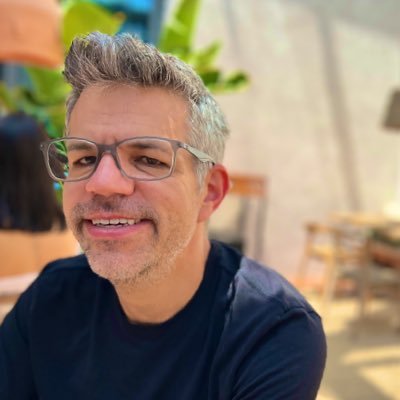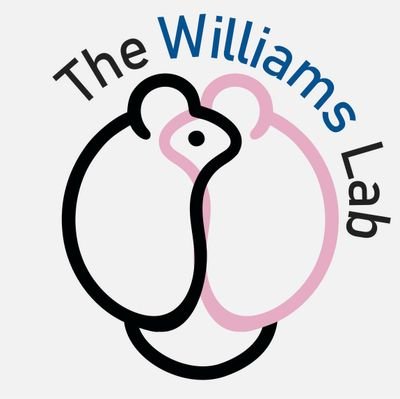
Alaina Pearce
@AlainaLPearce
Followers
129
Following
111
Media
6
Statuses
117
Assistant Research Professor @pennstateNUTR, interested in #CognitiveNeuroscience of #obesity and #EatingBehavior, @Georgetown & @UMNMorris alumna
State College, PA
Joined January 2019
If you are unable to make it to one of the nationwide Stand Up for Science rallies on Friday, March 7th, consider participating in the Nationwide Walkout on Friday, March 7th at 12pm. I will be walking out of my lab on Friday! https://t.co/r5ZeF1GFi0
0
2
3
Thank you Danny for inviting me to be a guest in your podcasts and for all of the great questions!
New episode on food texture and eating rate with @Marlou_La of @WUR Episode page: https://t.co/em4gTpKRvC Or find Sigma Nutrition Radio on all podcast apps. cc: @fordeycee
0
2
16
Do you tend to eat one thing at a time or switch between various foods on your plate? 🍽️ Recent research by @NicholasNeuwald and @KatKellerLab explores how consistent this food-switching behavior is within children across various meals. https://t.co/xOcYx1XbrZ
#pennstatenutrsci
0
3
7
New publication❗️Excited to share my paper on food switching behavior in children. Here we look at how consistent switching behavior is within children across different meals and eating paradigms.🍽️@KatKellerLab, @AlainaLPearce, @PMCunningham23
https://t.co/YDfrlQ33rq
1
2
8
This #FacultyFriday, we are learning about developments in research methodology that will allow researchers to study children’s eating behaviors in natural settings, like their homes. Visit https://t.co/tTmKGWTeph to learn more. @AlainaLPearce #pennstatenutrsci
0
1
4
Great new paper out from @AlainaLPearce and the rest of our Penn State crew on Loss of Control Eating and Brain Structure in Children:
frontiersin.org
Loss of control (LOC) eating is the perceived inability to control how much is eaten, regardless of actual amount consumed. Childhood LOC-eating is a risk fa...
0
1
5
Four trainees in nutritional sciences presented at the annual ObesityWeek conference to discuss how behavioral studies may help inform interventions that aid individuals in maintaining long-term healthy dietary habits. Visit https://t.co/OxS3JagB87 to learn more. #HHDProud
0
2
7
🚨Attn @PSUresearch faculty: We're accepting applications for its Early-Stage Investigator Training (KL2) Program. The KL2 provides research training needed to become successful, independent clinical and translational scientists.🗓️⏰ LOIs due Nov. 10! https://t.co/Yr7gpm7ARf
0
2
4
Excellent new paper from @KatKellerLab
@NicoleAReigh @TanjaKral @AlainaLPearce @marion_mh and Barbara Rolls on energy compensation in Children. Findings show wide variability in energy compensation & methods across studies. More research needed on inter-individual differences
1
1
15
Come work in our lab! We have exciting science and really cool people on the team.
We have a new RA/Project coord. position in our lab to work on an fNIRS, EEG, & mobile eye-tracking study with young children & their parent. Please share with your mentees!!! https://t.co/ZpzqzpjJDr
#psychtwitter #psychjobs @BlackinPsych @devpsybio @SRCDtweets @PsychScience
0
19
42
Hiring a post-doc for an fMRI study around perceptual and hormonal satiation signaling. R/T appreciated! https://t.co/9oLfNqsbLz
#fMRI #obesity
0
34
28
Virtual reality headsets can be used in eating behavior studies to simulate real-world environments, according to research from @NutritionCues in @pennstateNUTR. This technology provides a sustainable method for studying eating behavior and food choice. https://t.co/BLdiJuW9ZU
0
2
4
So happy to have helped with the first Open Science Bootcamp at PSU. We had great representation across Penn State! #OpenScience @SSRIPennState @pennstatehhd @psulibs @PSUEngineering @PSUBellisario @PSULiberalArts @PSUScience @agsciences @SmealCollege @ISTatPENNSTATE and more!
Penn State's first ever Open Science Bootcamp was held earlier this month. You can read more about it here: https://t.co/QNSuRxCaXo
@rogilmore #openscience @PSUPsychology @PennStateHHD
0
4
11
The @KatKellerLab is actively recruiting 18-30-year-old adults to participate in an in-person #interoception study. If you live in the Centre County area and want to participate email, call, or scan QR code. @PSUresearch @penn_state @pennstateNUTR
0
3
5
Congrats to Nick Neuwald and @KatKellerLab for another great paper on eating microstructure! Switching between foods was associated with greater eating in the absence of hunger and reward-based eating. @SSIBsociety @PSUresearch @pennstateNUTR
https://t.co/lPghqi2qfD
0
2
8
It would be hard to overstate Penny Kris-Etherton's personal impact on @pennstateNUTR or her scholarly impact on the field of cardiometabolic health. Congratulations, and happy retirement! https://t.co/JfnQ9X7dvU
2
1
8
1/5 We're recruiting #Postdocs & #GradStudents to study @NIDDKgov funded projects understanding the flexibility of neural circuits involved in obesity & diabetes. @UTSW & @CityOfDallas, great place to live & work with cutting-edge science! @UTSWInternalMed @UTSWBrain @UTSWNews
4
52
79
While both Dr. Kissilef's ( https://t.co/pYCTI4aRoM) and Dr. Thomas's ( https://t.co/4Kq0GuVntU) models performed well, the Dr. Thomas's LODE model had several advantages: 1) parameters were independent 2) no non-feasible intake values 3) parameters were more distinct
0
0
2
Using simulations, we showed that measurement error from using average bite size and video-coded bite timing did not impact the ability to accurately extract cumulative intake curves. This means scales are not required.
1
0
2
Cumulative intake curves are typically assessed with hidden scales to continuously measure intake. However, this requires limiting many eating behaviors that are typical for children or those with disordered eating (e.g., playing with/dissecting food).
1
0
2













